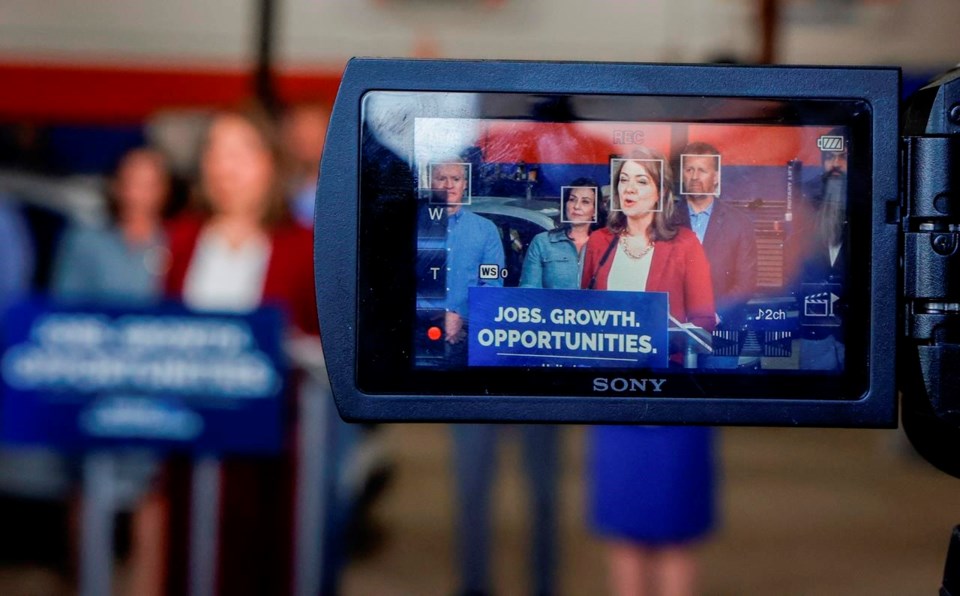EDMONTON — United Conservative Leader Danielle Smith is abandoning her media-question restriction policy during the wildfire crisis in order to ensure Albertans receive accurate information.
However, Becca Polak, the spokeswoman for Smith during the election campaign, says for all other topics ahead of the May 29 polling day, each reporter remains restricted to one question per news conference with no followup questions.
“We are in a public state of emergency and the premier will continue to take followup questions during her wildfire update campaign,” Polak said Monday in an interview.
Polak said the change was made “because it’s very important that Albertans get the correct information about what’s going on with the wildfires.”
Otherwise, she said, “(Smith) will continue to take one question during the campaign.”
Alberta has been dealing with multiple wildfires in recent days that have displaced close to 30,000 residents.
The premier announced the one-question rule as government policy on April 14 before the election campaign began.
The policy applies only to Smith, not to other members of her cabinet and caucus.
At the time, Smith said the election and pre-election period meant more interest from the media, and that by limiting questions she could provide answers to more reporters.
When the writ was issued May 1, Smith reiterated the policy would continue, saying, “We're in a period of time during this election where there's a lot of people who want to ask me questions and we want to be able to take as many as possible.”
The policy continued until Saturday, when Smith held two news conferences about the wildfires and declared a provincial state of emergency. She returned to the past practice of allowing one question and a followup query from reporters.
On Monday, that policy continued, although with some confusion.
A reporter who asked a non-wildfire question of Smith – seeking comment on her apology earlier in the day for past statements comparing COVID vaccine recipients to followers of Adolf Hitler – was nevertheless granted a second question, albeit contingent on the query being about the wildfires.
He declined to ask one.
The Opposition NDP and the Alberta Legislature Press Gallery Association have criticized the question-restriction policy, saying it deprives reporters of the opportunity to challenge or seek clarification from the premier if her initial answer proves insufficient.
"Leaders take questions – it's part of the job,'' NDP Leader Rachel Notley said when the policy began.
Smith's UCP, meanwhile, has accused Notley of hypocrisy for chastising Smith while Notley refuses to take queries from the Western Standard news website.
Notley said she respects media and differing political viewpoints among media but cannot dignify an organization that she says, through its editorial policy, ignores human rights and dignity by promoting discrimination and hatred, particularly toward the LGBTQ community and members of Notley's caucus.
Notley said until the Western Standard retracts and apologizes for past stories, "I simply cannot engage in any sort of normalization of that kind of conversation. It is a breach of our human rights code.''
Western Standard publisher Derek Fildebrandt has said Notley “is not entitled to decide who is media and who is not. The Western Standard will never retract a story that contains no errors other than offending her sensitivities.''
The question-restriction policy has undergone a couple of iterations since it was launched.
The initial plan was for it to be limited to not just one reporter per news conference, but also one media outlet per news conference. That was never implemented amid confusion over whether larger news outlets would be defined by their corporate parents or their subdivisions and whether multiple reporters from the same outlet would be granted questions.
This report by The Canadian Press was first published May 8, 2023.
Dean Bennett, The Canadian Press




